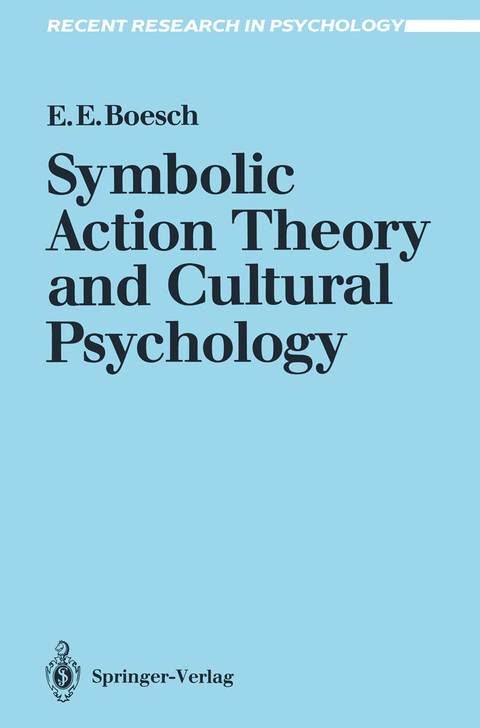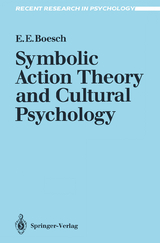Symbolic Action Theory and Cultural Psychology
Springer Berlin (Verlag)
978-3-540-53992-6 (ISBN)
Introductory Commentary.- 1 Introduction.- 2 Experiencing Culture.- 2.1 First Initiation.- 2.2 Denotative and Connotative Meaning.- 2.3 Goals and Barriers.- 3 Culture: An Action-Theoretical Definition.- 3.1 Culture is a Field of Action.- 3.2 The Contents of the Cultural Field of Action.- 3.3 Culture Defines Possibilities and Conditions for Action.- 3.4 Culture is both a Structure and a Process.- 4 Action-Theoretical Concepts.- 4.1 Some Introductory Remarks.- 4.2 The Concept of Action.- 4.3 The Phases of Action.- 4.4 Action Relationships.- 4.5 Action Field and Action Spheres.- 4.6 Connotations and Symbolism of Action.- 4.7 "Overt" and "Covert" Action.- 4.8 Is-versus Should-Values and Ranges of Tolerance.- 4.9 The Action Potential.- 4.10 Resistance, Limitations, and Barriers.- 4.11 Dominant Goals of Action.- 4.12 The Consciousness of Actions.- 4.13 Conflict.- 4.14 Stabilization and Innovation.- 5 Space and Time.- 5.1 Space.- 5.2 Time.- 6 Objects.- 6.1 General Aspects of Man-Object Relationships.- 6.2 Objectivation and Subjectivation.- 6.3 The Symbolism of Objects.- 6.4 Instrumentality and Consumptions.- 6.5 The Aesthetic Object.- 6.6 The Magical Object.- 6.7 Order and Disorder: The Constellation of Objects.- 7 Myths and Fantasms.- 7.1 Freud and Lévi-Strauss: Variations in Interpretation.- 7.2 Myths, Mythemes and Myth-Stories.- 7.3 The Role of Fantasms.- 7.4 The Impact of Fantasms on Myths: Narcissus.- 7.5 Examples of Myth-Fantasm-Interactions.- 8 The I and the Others: Identity and Empathy.- 8.1 Identity.- 8.2 Empathy.- 9 Epilogue.
| Erscheint lt. Verlag | 26.6.1991 |
|---|---|
| Reihe/Serie | Recent Research in Psychology |
| Zusatzinfo | IX, 387 p. |
| Verlagsort | Berlin |
| Sprache | englisch |
| Maße | 155 x 235 mm |
| Gewicht | 625 g |
| Themenwelt | Geisteswissenschaften ► Psychologie ► Sozialpsychologie |
| Medizin / Pharmazie ► Medizinische Fachgebiete ► Arbeits- / Sozial- / Umweltmedizin | |
| Sozialwissenschaften | |
| Schlagworte | action theory • Anthropologie • Anthropology • Culture • Handlungstheorie • Kultur • Psychologie • Psychology • Symbol Theory |
| ISBN-10 | 3-540-53992-1 / 3540539921 |
| ISBN-13 | 978-3-540-53992-6 / 9783540539926 |
| Zustand | Neuware |
| Haben Sie eine Frage zum Produkt? |
aus dem Bereich




